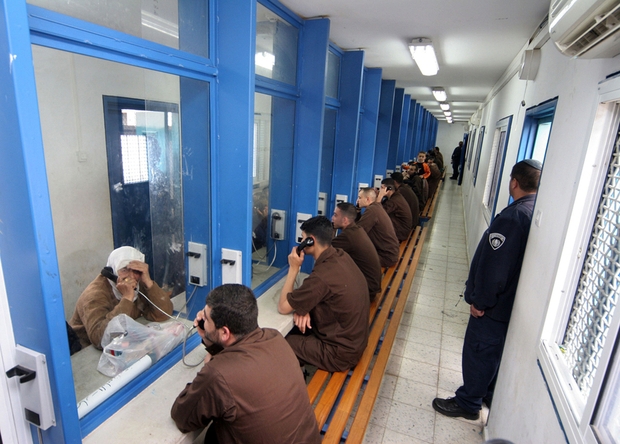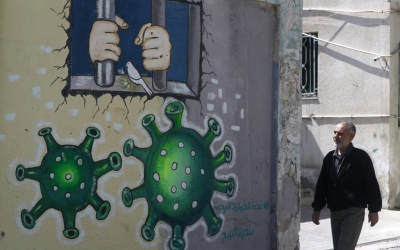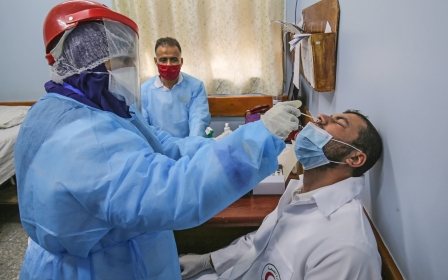Covid-19: Scores of Palestinian prisoners infected

Around 73 Palestinian prisoners have tested positive for Covid-19 inside the Israeli prison of Gilboa, according to the Palestinian Committee of Prisoners' Affairs.
The rise in coronavirus cases in Gilboa, in central Israel, has led authorities to put the prison under lockdown, while the number of prisoners infected with Covid-19 is expected to rise.
The Israeli Prison Service (IPS) has completely closed the prison and cancelled all visits, and said that it would transfer those infected to Tzalmon prison.
There are currently 4,400 Palestinian prisoners inside Israeli jails, 700 of whom suffer from various illnesses.
The Committee of Prisoners' Affairs on Tuesday condemned the “bad measures” inside the prison that helped spread the infections.
It said that the IPS's “negligence in preserving the safety of the detainees” is what made Palestinian prisoners vulnerable to getting infected with Covid-19.
Section three of the prison, where 90 out of 360 prisoners are locked, has been badly hit by the coronavirus.
Haaretz reported that, according to the prison administration, the prisoners were "all doing well and most of them are asymptomatic".
Palestinian prisoners in Gilboa said that the spread of the coronavirus had originated from one of the Israeli wardens.
The Committee of Prisoners' Affairs said in a statement that Palestinian prisoners inside Gilboa, Ramon and Nafha were planning “escalation steps” against the IPS.
At least 2,580 people have died of Covid-19 in Israel since March, while 573 deaths have been recorded in Palestine.
Middle East Eye propose une couverture et une analyse indépendantes et incomparables du Moyen-Orient, de l’Afrique du Nord et d’autres régions du monde. Pour en savoir plus sur la reprise de ce contenu et les frais qui s’appliquent, veuillez remplir ce formulaire [en anglais]. Pour en savoir plus sur MEE, cliquez ici [en anglais].





